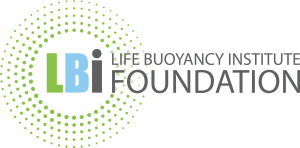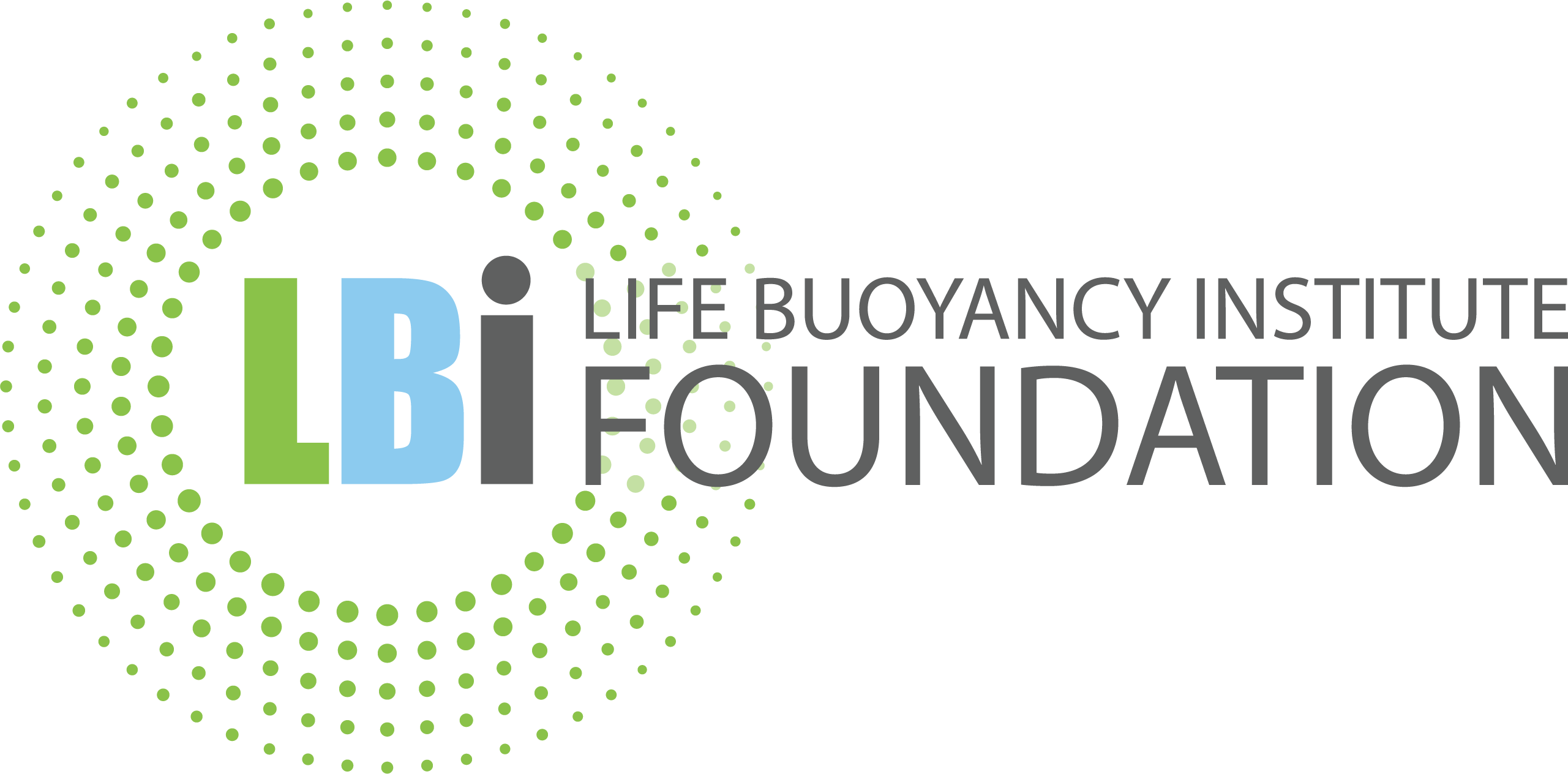We Embrace Complexity and Shared Solutions
In how mental health, wellbeing and community services are delivered across regional communities
Across Australia, mental health and wellbeing problems are increasing, with this magnified across vulnerable and regional communities.
The reasons are varied and complex. Mental health and wellbeing must be understood through the interaction of the individual and their social and community context.
Regional communities offer a range of unique contextual factors that are key to understanding mental health and wellbeing. These include:
- Local industry changes.
- Individual COVID-19 impact.
- Drought, floods and climate change.
- Tourism instability.
- International trading.
- Trauma related to bushfires, floods, family violence, or disconnection from culture and identity.
- Individual cultural context and needs.
Across regional communities many people and organisations are doing great work. However, it is not uncommon for this to occur in a silo, or isolation, where individuals and agencies work really hard in their own patch, but may overlook opportunities, or lack the tools and methods to collaborate and develop shared responses and solutions.
This is so important because there are no quick fixes when it comes to responding to complex issues like mental health, domestic violence, child protection, student disengagement and chronic health.
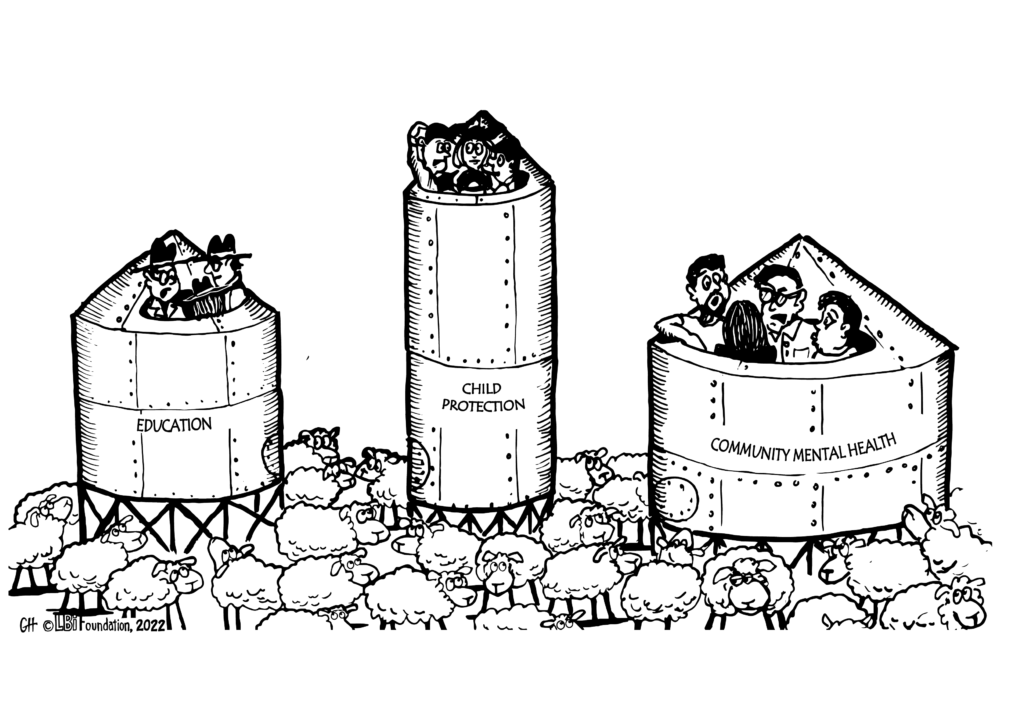
The siloing of programs and services across some regional communities
Our Intent
Building of Wellbeing and Trauma Responsive Regional Communities
Where all community members thrive
A key pillar to improving mental health outcomes are community owned and led wellbeing solutions. In other words:
Intentionally delivered programs, responses, strategies or interventions that help people get back on their feet when life has got on top of them, and to prevent and stop people getting there the first place.
This approach embraces complexity in understanding the individual factors driving mental health outcomes in a regional community, and brings focus to local and culturally sensitive solutions.
A wellbeing and trauma responsive regional community is when community members, teams and agencies:
- Have a detailed understanding of the science of wellbeing, trauma, growth and human development, as made practical for individual and collective community members.
- Can intentionally respond (rather than react) to the individual growth, trauma, developmental and mental health needs of community members.
- Can intentionally build the capacity (including awareness, skills and mindsets) of all community members for thriving outcomes.
- Are empowered to work side-by-side together with shared intent, and can co-construct shared wellbeing and growth solutions (Growth Action Plans) that respond to the specific mental health and wellbeing needs of individual and collective community members.
In other words, integration, collaboration, shared intent and empowerment are the drivers of growth and change within a regional community.
Communities delivering support and services with shared intent
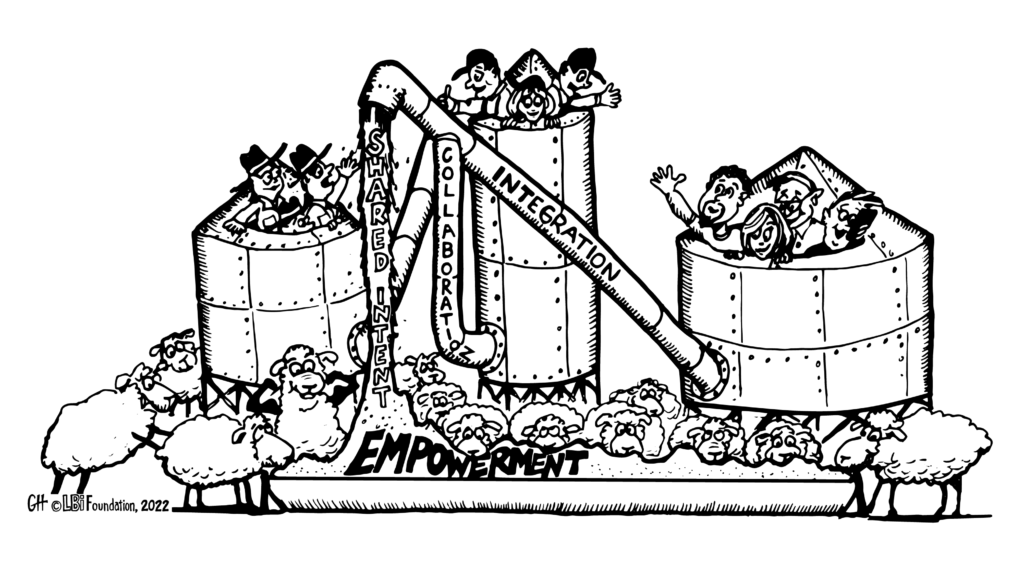
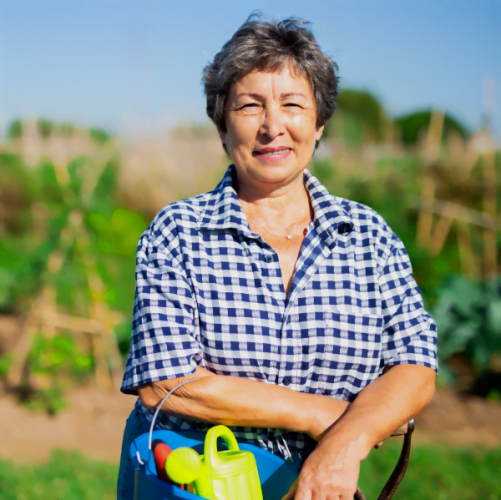
How Do We Do This?
Partners in Locally Led Capacity Building
The Bush Telegraph is a LBI Foundation program that brings together both ‘Program Partners’ (e.g., agency, school, council) and ‘Community Funders’ through a shared commitment to improve local mental health and wellbeing outcomes.
It is focused on providing community members who are embedded within the “bush” with the shared language, knowledge, skills and methods to “telegraph” the science of wellbeing, growth and trauma in a manner that makes a local difference.
The Bush Telegraph is founded upon the following four features.
1. Foundational IMPACT Training – the foundational IMPACT training provides shared language, methods, tools and resources to enable the science of wellbeing, growth and trauma to be translated and personalised to individual context, in a manner that honours the strengths and knowledge of individual and community.
2. Community Champions – these IMPACT trained, coached and accredited community members have access to ongoing coaching and resources to empower their communities.
3. Community Conversations– interagency workshops to build a shared intent and collaboration.
4. Wellbeing Projects – Community Champions support and empower local schools, agencies, groups and teams to deliver projects that translate the science of wellbeing to community needs and context, drawing upon IMPACT Program resources, tools, modules and strategies.
Who are Program Partners?
Program Partners are agencies, NGO’s, schools or community groups which are committed to energising and empowering their communities to build whole-of-community wellbeing and mental health outcomes. The Bush Telegraph draws upon the strengths of both LBI Foundation and ‘Program Partner’. LBI Foundation offers a suite of best-practice tools, methods and resources to translate the science of wellbeing, growth and resilience into action, and the ‘Program Partner’ is the face of local community engagement and knowledge translation.
Who are Community Funders?
‘Community Funders’ are agencies, councils, corporate entities, philanthropic groups and government departments who want to support the building of wellbeing-and-trauma responsive local communities.
Language
Knowledge
Skills
Methods
Local Stories and Research
Across Regional South Australia
Further Information
If you are interested in learning more about The Bush Telegraph, we encourage you to watch this video.
For further information, please contact John Shepherd on john.shepherd@lbi.org.au
